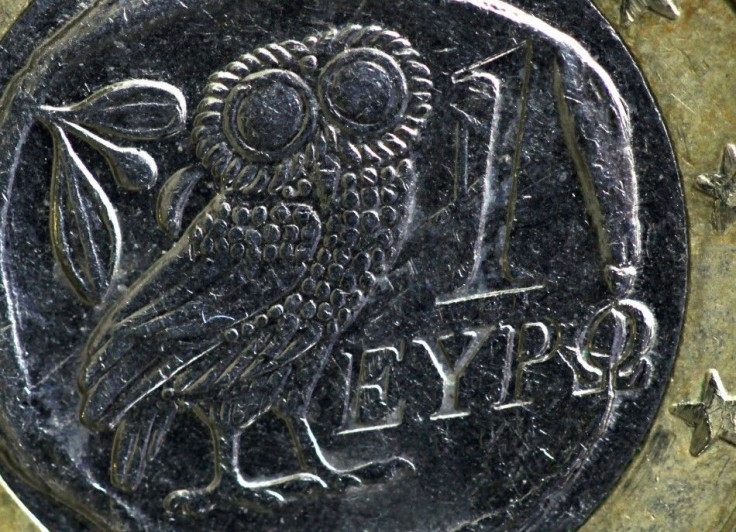Exiting Euro Could Spark Greek Revival, Doom Germany: HSBC's King

Exiting the euro zone could spark economic revival in Greece and doom the currency union, said Stephen King, group chief economist at HSBC.
King, while countering what he says is the conventional wisdom that kicking Greece out will save the euro zone, concedes an exit likely would lead to months of financial and economic turmoil for the Mediterranean country.
Its exchange rate would collapse under reintroduction of the pre-euro currency, the drachma. It might need to default on its debt again. And Greek workers might have no choice but to accept less pay and tougher demands.
But all of these factors, argues King, could give way to economic resurgence in Greece.
Cheap labor and low exchange rates could entice China to use Greece as its hub for goods exported to southern Europe and its environs. Greece also could become China's major supplier of olive oil, as its exports become cheaper relative to euro zone members Spain and Italy, which are also major producers of olive oil.
Greek exports to other parts of the world could also boom.
Given the healthy growth rate and debt reduction an all-out default could produce, Greece may become an extraordinarily attractive destination for foreign investors, the HSBC economist believes.
Meanwhile, Spain and Italy, stuck under low-growth austerity regimes imposed by euro zone powerhouse Germany, will continue to be shunned by capital markets. And investors, pricing in the increased probability of a euro zone exit by those two countries, could push up they yields on Spanish and Italian bonds to extremely costly levels.
Germany may then be faced with two unpleasant scenarios: It could push for a euro zone fiscal union and permanently fund the deficits of its southern neighbors. Or it could let the euro fall apart and see the value of a post-euro Deutsche mark surge.
In the latter scenario, the strong mark could wipe out vast swathes of German industry, said King, whose assertions underscore the vital importance of exchange rates in today's globalized world.
For example, if the German mark were to increase by 80 percent against the drachma, a Greek exporter would achieve an 80 percent price advantage over its German competitor, all things being equal, even though nothing would have changed on the microeconomic front.
Germany is well aware of this potential advantage. In fact, some commentators including Richard Kang of Emerging Global Advisors believes this was one of the main reasons Germany pushed to create the euro in the first place.
Now, amid the heat of the euro zone debt crisis, it remains to be seen how much Germany will be willing to pay for this expensive privilege.
© Copyright IBTimes 2024. All rights reserved.











